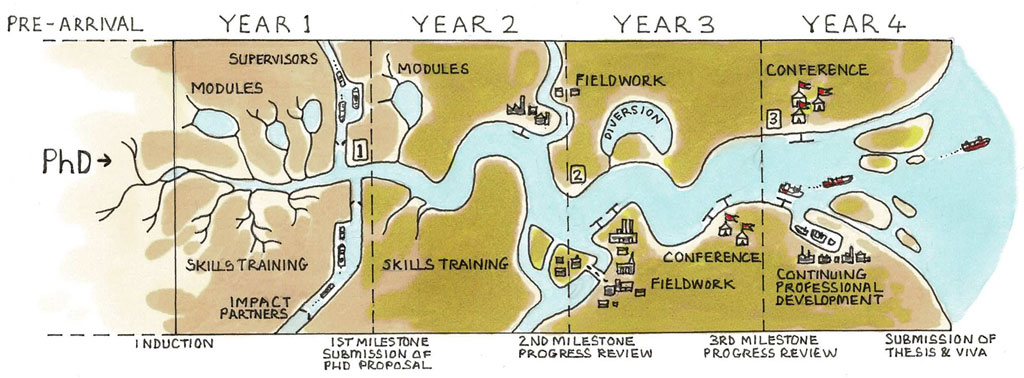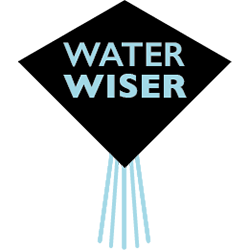The Water-WISER PhD can be visualised as a river flowing to the sea, as in the diagram below.

The PhD idea starts via discussions pre-arrival, and during our ‘induction’ event which is held either at Leeds, Cranfield, or Loughborough (rotating each year between the campuses).
During the first year, students undertake modules and professional skills training which feed into the developing PhD project from many directions according to a recognised Researcher Development Plan. Appropriate academic supervisors and Impact Partners join the project. Impact Partners can be project sponsors, fieldwork hosts, or external companies offering advice and help as well as access to data.
At the end of Year 1, the student submits their full PhD project plan, including a literature review with a budget for fieldwork and a Gantt chart to show when each stage of the project will take place. Contracts with partners are drawn up if there is co-funding support. This project plan is vetted in stages by the CDT management team, so by this point the student will be able to start their PhD in earnest.
During Year 2, students can undertake further modules and continuing skills training as necessary to help the development of their PhD. Fieldwork may be undertaken through the rest of the programme, either in one 6-month block, or in several smaller instalments. Unique to the Water-WISER PhD, up to £20k in research funding is available to each student to support overseas fieldwork.
At the end of each year, students must progress through a ‘milestone’ which involves a rigorous review of their work by an academic team. At Leeds, for example, students must undergo a mock ‘viva’ or oral examination at the end of Year 2. Note that the milestones are managed differently at each university.
Throughout the programme there are opportunities to present the PhD project to new audiences via conferences, which could be within a university, across Leeds, Loughborough and Cranfield, or a national/international event. Typically, the international WEDC conference takes place each year around September and is attended by the Water-WISER cohort.
At the end of Year 4, the student is ready to submit their thesis and undergo their ‘viva’ (oral examination). The funded scholarship comes to an end at this point. Throughout the programme, but especially in the latter stages, continuing professional development and careers training is provided to ensure the student progresses into an excellent career in the sector following graduation.
